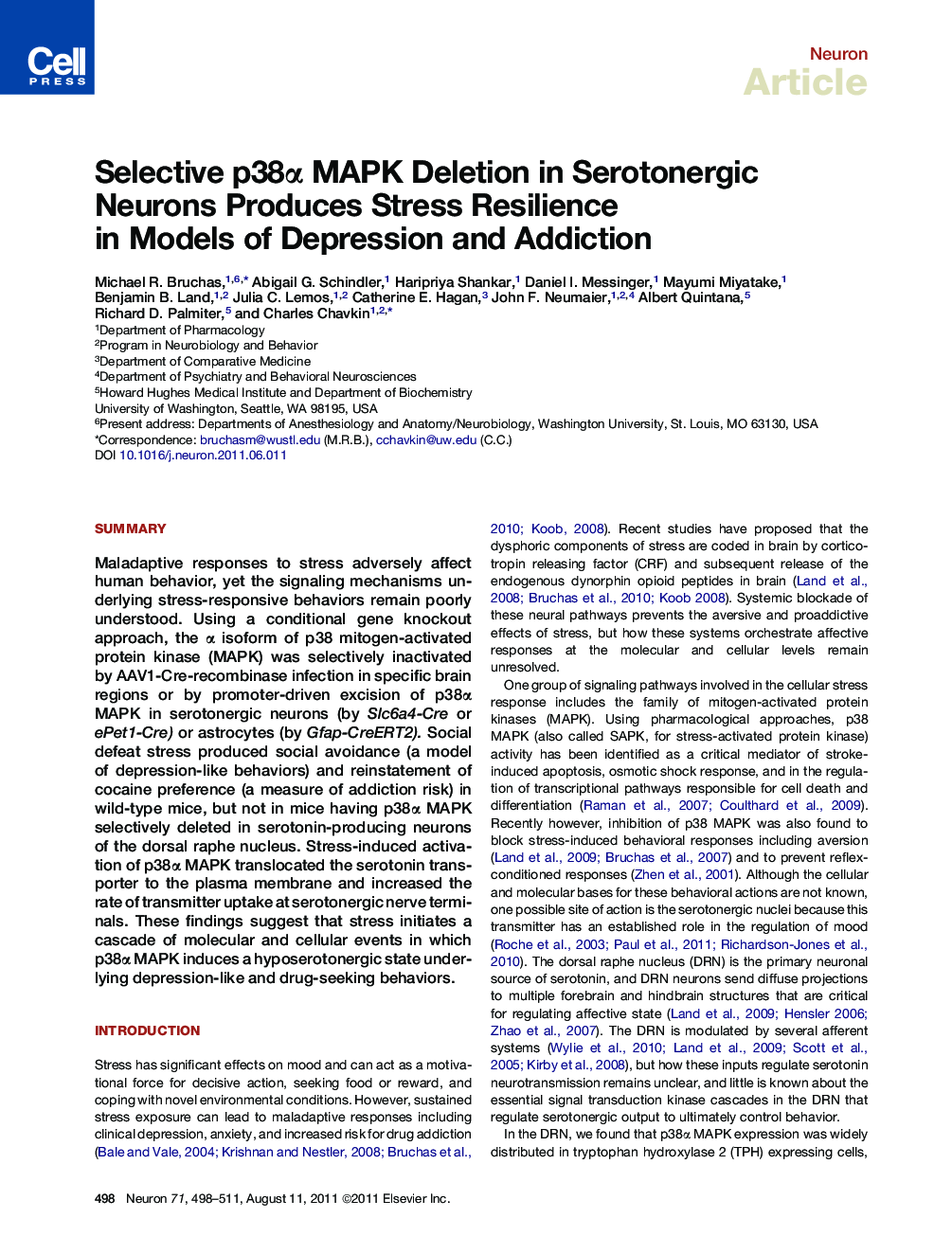| Article ID | Journal | Published Year | Pages | File Type |
|---|---|---|---|---|
| 4321995 | Neuron | 2011 | 14 Pages |
SummaryMaladaptive responses to stress adversely affect human behavior, yet the signaling mechanisms underlying stress-responsive behaviors remain poorly understood. Using a conditional gene knockout approach, the α isoform of p38 mitogen-activated protein kinase (MAPK) was selectively inactivated by AAV1-Cre-recombinase infection in specific brain regions or by promoter-driven excision of p38α MAPK in serotonergic neurons (by Slc6a4-Cre or ePet1-Cre) or astrocytes (by Gfap-CreERT2). Social defeat stress produced social avoidance (a model of depression-like behaviors) and reinstatement of cocaine preference (a measure of addiction risk) in wild-type mice, but not in mice having p38α MAPK selectively deleted in serotonin-producing neurons of the dorsal raphe nucleus. Stress-induced activation of p38α MAPK translocated the serotonin transporter to the plasma membrane and increased the rate of transmitter uptake at serotonergic nerve terminals. These findings suggest that stress initiates a cascade of molecular and cellular events in which p38α MAPK induces a hyposerotonergic state underlying depression-like and drug-seeking behaviors.
► p38α MAPK is for stress-induced behaviors including depression and addiction ► Selective p38α MAPK deletion in serotonergic neurons produces stress resilience ► p38α MAPK activation translocates the serotonin transporter ► Stress-induced dysphoria is caused by hyposerotoninergic tone
